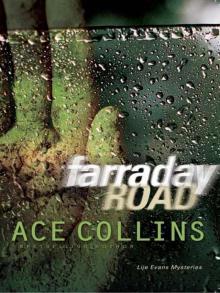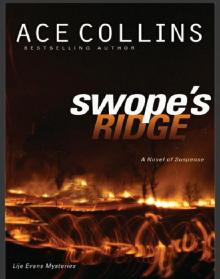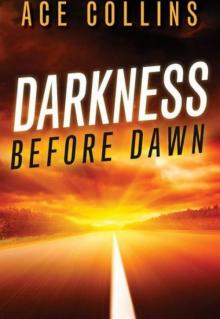- Home
- Ace Collins
Stories Behind the Best-Loved Songs of Christmas Page 5
Stories Behind the Best-Loved Songs of Christmas Read online
Page 5
Rather than still his voice, Suso felt a call to continue what he saw as a divine war. A year later, the unrepentant monk continued his battle with figures of authority by penning the Little Book of Eternal Wisdom. Unlike most religious books of the time, this one was essentially a practical work written in simple language. It wasn’t for clerics or professors, it was for the common people. This was a radical concept. Who would dare think that simple people would have any interest in understanding God and the message he brought to the world in the form of Christ?
Unable to control the priest and afraid that his radical thinking might cause a revolt, in 1329 the Pope condemned Suso. Eventually the German king exiled him. Suso fled to Switzerland. For a man born of noble blood, exile was the ultimate humiliation. Over the course of the next few years, the wellmeaning priest suffered vicious persecution and slander. Yet even in the face of death threats, he refused to turn his back on the church, his calling, or his desire to share the gospel with the masses.
Wanting to bring joy to the practice of the Christian faith, Suso preached of the happiness he found in walking with God. Many wondered how such a reviled man could find such blessings in life. He explained that God gave him peace and inspiration during every waking hour, and even while he rested. It was during the latter that the priest was given a vehicle to carry his message to the people.
One night, Suso found himself immersed in a dream so real that he became a part of it. In his dream, the priest saw countless angels not only singing, but dancing. He listened as they sang, and eventually joined with them in “an ecstatic dance.” When he awoke, he not only remembered the dream in vivid detail, but also recalled the words and the music. Feeling led by divine guidance, Suso picked up a quill and ink and recorded “Good Christian Men, Rejoice” to paper. Until his death in 1366, he continued to reach the common man with this song and its message.
“Good Christian Men, Rejoice” was as radical a hymn as Suso’s thinking was progressive. Christian music of that era was usually solemn, based totally on Scripture, and never written in the common language. Suso had broken all three rules. His song embraced the joy of being a believer and enjoined a spirit whose meaning any child could understand. Although it was not immediately accepted by the church itself, the German people quickly and enthusiastically took the song to heart. They believed that just as Suso had been a priest to the common people, his song was a song for them as well.
Good Christian men, rejoice
With heart, and soul, and voice;
Give ye heed to what we say:
News! News! Jesus Christ is born today!
Ox and ass before Him bow,
And He is in the manger now;
Christ is born today!
Christ is born today!
Good Christian men, rejoice
With heart, and soul, and voice;
Now ye hear of endless bliss:
Joy! Joy! Jesus Christ was born for this!
He hath ope’d the heav’nly door,
And man is blessed ever more;
Christ was born for this!
Christ was born for this!
Good Christian men, rejoice
With heart, and soul, and voice;
Now ye need not fear the grave:
Peace! Peace! Jesus Christ was born to save!
Calls you one and calls you all,
To gain His ever lasting hall;
Christ was born to save!
Christ was born to save!
It would be more than 150 years before the carol inspired by a priest’s dream found its way into print, but just because it wasn’t published didn’t mean that the song didn’t inspire other writers in Germany—including Martin Luther—to compose hymns in the common language for the common people. Suso’s radical thinking became part of the primary foundation for a revolution in the way most people viewed their relationship with Christ. Even the Catholic church would come to realize that the priest had been right, and in 1831 the Pope canonized Heinrich Suso.
James Mason Neale, a Church of England priest, hymn writer, and scholar whose work included “All Glory, Laud and Honor,” was another free thinker impressed with Suso’s ideas and song. It is understandable that Neale was deeply moved by the song’s attempt to bring the joy of salvation to the common man. In a world filled with sadness, he wanted everyone to know the joy that came when Christ entered a believer’s heart. Sadly, in the mid–1800s, Neale’s views of an exuberant faith were viewed as radical.
He was exiled to a pastorate far from his native England and even stoned and beaten by a crowd once for his beliefs. Although ridiculed by the leadership of his own denomination, Neale still sought out ways to reach the lost and forgotten. In a radical move for a priest in the Church of England, and over the objections of his superiors, Neale began an order of women, the Sisterhood of St. Margaret, to feed the poor, take care of orphaned children, and minister to prostitutes. Though this group would touch tens of thousands, it brought death threats to Neale and the women who served in the Sisterhood. Nevertheless, in 1853 an English publisher released Neale’s English translation of “Good Christian Men, Rejoice” in Carols for Christmastide. This book would pave the way for the song to be taken to the world.
By 1900, “Good Christian Men, Rejoice” had become one of the most popular carols in both America and Europe. A century later, it is still one of the most beloved Christmas songs in the world.
In spite of its popularity, “Good Christian Men, Rejoice” is rarely performed by huge choirs or in the best concert halls and cathedrals. The fact that the classical crowd has largely overlooked this song would probably please Hcinrich Suso and John Mason Neale. After all, both men had suffered shame and ridicule because of their efforts to spread the Good News to the very people Christ spoke of during his own life on earth—“the least of these.”
10
GOOD KING WENCESLAS
Of all the ancient legends that surround Christmas, the tale about King Wenceslaus (later spelled Wenceslas) stands out. Though the carol was composed by noted songwriter and priest, John Mason Neale, the song is based less on a writer’s inspiration than on historical fact. King Wenceslaus was a real member of European royalty, a ruler who daily touched his subjects with Christian kindness and charity. For many in the Dark Ages, this king was the role model for Santa Claus. Today, over a thousand years after his death, King Wenceslaus remains a role model for Christian people everywhere.
The son of Duke Borivoy of Bohemia, Wenceslaus had the good fortune to be raised by his grandmother, Ludmilla. Ludmilla was a devoted Christian woman who taught her grandson the meaning of faith, hope, and charity. Wenceslaus took his grandmother’s lessons to heart, and in 922, when Duke Borivoy was killed in battle, the youngster seemed ready to put what he had learned into action. At the tender age of fifteen, Wenceslaus, just a few minutes older than his twin brother, Boleslaus, was made the leader of Bohemia.
As the young duke attempted to guide the troubled nation, his mother, Drahomira, and his brother, Boleslaus, instituted a pagan revolt. They assassinated Ludmilla as she prayed, then attempted to overthrow Wenceslaus. The teen took charge, put down the rebellion, and in an act of Christian kindness, expelled his mother and brother rather than executing them. The tiny nation was amazed that the boy would react with such great mercy.
With the wisdom of Solomon, the young duke set up a nation built on true justice and mercy. He enacted laws in the manner he thought would best serve his Lord. He even journeyed out into the country seeking insight as to what his people needed. When possible, he shared everything from firewood to meat with his subjects. He took pity on the poor and urged those blessed with wealth to reach out to the less fortunate. In large part due to Wenceslaus’s example, a host of pagan peasants turned to Christianity. It was a revival unlike any had ever seen in the country.
When Wenceslaus married and had a son, all of Bohemia celebrated. Peasants and powerful landlords sought the man out, offer
ing their prayers for long life and happiness. With a smile on his face, the leader assured them that he was praying for their happiness as well. In the years that followed, the duke and his subjects continued to share both their prayers and their blessings with one another each day. Rarely had a leader been as universally revered as was Wenceslaus.
And Wenceslaus loved Christmas. Centuries before gift giving became a part of the holiday tradition, the young leader embraced the joy of sharing his bounty with others. Inspired by a sincere spirit of compassion, each Christmas Eve the duke sought out the most needy of his subjects and visited them. With his pages at his side, Wenceslaus brought food, firewood, and clothing. After greeting all in the household, the duke would continue to the next stop. Though often faced with harsh weather conditions, Wenceslaus never postponed his rounds. Like a tenth century Saint Nick, the kindly young man made the night before Christmas special for scores of families. For many, a Christmas Eve visit from the duke was an answered prayer and a special reason to celebrate the birth of Jesus.
In 929, when he was just twenty-two years old, Wenceslaus was on his way to church for his daily prayers. As he greeted his subjects and took time to ask about their health, the warm look on the man’s face assured each of them that he cared deeply about their welfare. Smiling and shouting greetings, he continued to the chapel. Just before entering, he heard a familiar voice. Turning, he must have been surprised when his brother greeted him. As a confused look crossed the Duke’s face, Boleslaus’s confederates ran up to Wenceslaus and stabbed him. Falling to his knees on the church steps, the dying ruler looked up and whispered, “Brother, may God forgive you.” Then he died.
It was a group of powerful pagan leaders who had supported Boleslaus’s overthrow of Wenceslaus. Amazingly, when the young man realized what he had done, the new duke turned away from his colleagues and embraced the faith that had guided his brother’s life and rule. Though he had planned the revolt that had killed his twin, it was Boleslaus who sustained the legend of Wenceslaus. Thanks to the man who killed his brother, the Crown of Wenceslaus became the symbol of the Czech nation.
John Mason Neale closely identified with Wenceslaus in that he, too, reached out to saint and sinner alike. (For more on Neale, see the essay on “Good Christian Men, Rejoice.”) Though often rebuked by Christians, Neale constantly tried to reform prostitutes, thieves, and even murderers. Any man or woman who ventured into his path felt the Englishman’s loving touch.
Good King Wenceslas looked out,
On the Feast of Stephen,
When the snow lay round about,
Deep and crisp and even;
Brightly shone the moon that night,
Tho’ the frost was cruel,
When a poor man came in sight,
Gath’ring winter fuel.
“Hither, page, and stand by me,
If thou know’st it, telling,
Yonder peasant, who is he?
Where and what his dwelling?”
“Sire, he lives a good league hence,
Underneath the mountain;
Right against the forest fence,
By Saint Agnes’ fountain.”
“Bring me flesh, and bring me wine,
Bring me pine logs hither:
Thou and I will see him dine,
When we bear them thither.”
Page and monarch, forth they went,
Forth they went together;
Thro’ the rude wind’s wild lament
And the bitter weather.
“Sire, the night is darker now,
And the wind blows stronger;
Fails my heart. I know not how,
I can go no longer.”
“Mark my footsteps, good my page;
Tread thou in them boldly:
Thou shalt find the winter’s rage
Freeze thy blood less coldly.”
In his master’s steps he trod
Where the snow lay dinted;
Heat was in the very sod
Which the saint had printed.
Therefore, Christian men, be sure,
Wealth or rank possessing,
Ye who now will bless the poor,
Shall yourselves find blessing.
When not involved in his mission outreach, Neale spent a great deal of time reviewing ancient Latin songs and text, often translating them into English for use in church services. One of the stories he came across was the biography of Wenceslaus. Sensing that the Duke would make a wonderful role model for children, Neale rewrote the old tale in verse form, making the Duke a King, and matching his lyrics to a Latin melody, “Tempus adest floridum.” It now seems ironic that Neale’s Christmas carol would be sung to a tune that when translated meant “Spring has unwrapped her flowers.” Yet because Wenceslaus brought his poorest subjects a breath of fresh air and warmth to the darkest winter days, perhaps Neale’s choice was no accident.
When published, “Good King Wenceslas” quickly became a holiday favorite in Europe. By the last part of the nineteenth century it was sung throughout the United States as well. This carol was largely responsible for making the legend of Wenceslaus known throughout the world, as it touched upon the Bohemian saint’s examples of faith, hope, and charity. Suddenly the symbol of Czech independence became the crown jewel of Christian living.
One of the most telling facets of the Duke’s legendary life can be found in the final verse of “Good King Wenceslas.” In the carol, the King reminds his page that when a person is alone, life is dark and bleak. But when a person reaches out to others—like Christ reached out to those in need—then that person never walks alone. Christ and those who have been touched by kindness are there to make each step of the journey easier and brighter. Just as the page’s walk was made easier by following in the King’s footsteps, so the King’s way was made easier by following in the steps of Christ.
Wenccslaus and Neale both held positions of importance. Either could have chosen to be served by others, yet each instead devoted their lives to service. Both understood the tenants of faith, hope, and charity and throughout their lives reached out to others with compassion and love. Now the carol “Good King Wenceslas” reminds the world that the spirit of Christmas giving didn’t begin with Santa Claus, nor should it end there. It can be alive in all who choose to give with love and live by faith.
11
HARK! THE HERALD ANGELS SING
In 1847, William Cummings, just sixteen years old, was singing one of the tenor leads in Felix Mendelssohn’s opera Elijah. For the young tenor, to be directed by one of the most renowned composers in the world was a dream come true. It is little wonder that that night made an indelible impression on Cummings and ultimately gave birth to a marvelous duo of lyric and melody.
Almost three decades before Cummings was born, England’s premier Christian poet and songwriter, Charles Wesley, died at the age of seventy. Wesley, the youngest of eighteen children, wrote more than three thousand hymns, many of which—such as “Jesus Christ Is Risen Today” and “Love Divine All Loves Excelling”—are still sung by millions. Yet the life and work of the man still remembered today as one of the greatest hymn writers in history could have been much different. If not for a dispute with an employer, Wesley’s contributions to both music and the establishment of a Christian movement might never have happened.
Wesley began his formal education at the Westminster School in 1716. He then studied at Christ College in Oxford. In 1735, at the age of twenty-eight, Charles sailed for Georgia to become secretary to General James Oglethorpe. In short order, Wesley found himself missing his home and family and feeling stifled in his new role. In less than a year he quit his job and returned to London.
Assigned to a church in Islington, England, Wesley immediately began making waves. His outlook was radically different from most other English clergy of the time. He visited prisons, was a strong supporter of individual thinking, often held church services outdoors, and believed Christian music needed to
be infused with heavy doses of personal witness, energy, and enthusiasm. He kept his mind sharp through daily Bible study and hours spent writing music.
In 1737, during his daily quiet time, Wesley was working on a new Christmas composition. When the pastor jotted down the line, “Hark! how all the welkin rings, glory to the King of Kings,” the new song quickly fell together. Welkin, a word foreign to most today, literally means the “vault of heaven makes a long noise.” Thus, when heaven sends forth a loud pronouncement, the entire power of the King is revealed. Set to one of the writer’s own unique melodies, “Hark! How All The Welkin Rings” premiered in Wesley’s own church and quickly gained favor with other congregations following the new Methodist movement. Naturally, the writer was pleased with the acceptance of his work. However, when his old college friend, George Whitefield, finally published the song, Wesley’s benevolent pride turned to rage.
Whitefield, a former bartender turned Calvinist preacher, was often at theological odds with Wesley. Wesley might have been pushing for reform, but Whitefield wanted to lead a revolution. After being ordained as a priest in the Church of England, Whitefield’s fiery rhetoric and evangelical messages kept him in constant trouble with the church. Because of his militant approach. Whitefield was soon banned from the Anglican churches of his day and forced to mostly preach in privately organized, open-air meetings. From Whitefield’s informal meetings sprang the revival movement that would soon explode in the United States.

 Stories Behind the Best-Loved Songs of Christmas
Stories Behind the Best-Loved Songs of Christmas Farraday Road
Farraday Road Yellow Packard
Yellow Packard Swope's Ridge
Swope's Ridge Darkness Before Dawn
Darkness Before Dawn